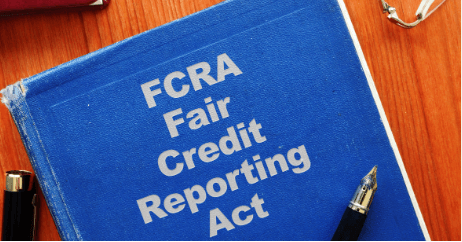What Protections Does the FCRA Offer?

What is the Fair Credit Reporting Act The FCRA is crucial in ensuring credit reports are accurate and fair. One of the main components of the FCRA is to guarantee that any negative information is either updated or deleted after a specific timeframe, empowers consumers to add their own explanations for better understanding, and requires quick resolution of disputes. These rights are essential for consumers to effectively oversee and safeguard their credit information, rectifying errors and misunderstandings while upholding transparency and fairness in credit reporting.
Updating of incorrect data
The FCRA restricts the duration negative details, like late payments or bankruptcies, can stay on a credit report. This assists in avoiding old data from harming a consumer’s credit rating.
The privilege to include additional statements
Consumers have the option to include a statement on their credit report to provide context for contested information. This allows consumers an opportunity to offer context and clarification.
Prompt resolution of conflicts
Credit agencies must look into disagreements regarding data in a credit file within a set period. This guarantees that customers’ issues are dealt with promptly.
The privilege to include statements
Customers have the option to provide a declaration on their credit report detailing the reasons behind challenged data. This allows consumers the opportunity to offer context and clarification.
Prompt examination of conflicts
Credit reporting agencies must examine disagreements regarding data in a credit file within a designated time frame. This guarantees that the needs of consumers are dealt with quickly.
Precise documentation of official documents
How to remove bankruptcies The FCRA requires that public records in a credit report must be both accurate and current. Customers have the privilege to challenge any discrepancies in publicly available records.
The entitlement to receive notices of negative actions.
If a consumer is declined credit, insurance, or employment due to details in their credit report, they must receive a notification of the negative decision and be given specific explanations.
Entitlement to be informed about the origin of credit data
Consumers are entitled to be informed of the origins of the information contained in their credit reports. This assists them in comprehending the foundation of the data and possible errors.
Equitable treatment of credit requests.
The FCRA governs the handling of credit inquiries to protect consumers from excessive or unauthorized inquiries.
The right to pursue compensation for FCRA infringements.
Consumers can take legal action and possibly receive compensation if a credit bureau or other entity breaks the FCRA.
Alert of negative consequences
Why are debt collectors calling my relatives ?The FCRA requires that individuals are informed if they are turned down for credit, insurance, or employment based on details in their credit report. This notification provides detailed explanations for the rejection, enabling consumers to comprehend and possibly challenge the decision.
Control of credit bureaus
The FCRA enforces rigorous rules on credit bureaus, monitoring how they gather, keep, and share data. The purpose of these rules is to uphold precision, equity, and confidentiality in credit reporting.
Updating of old information.
The FCRA restricts how long negative information, like late payments or bankruptcies, can stay on a credit report. This clause enables individuals to restore their credit gradually through exhibiting prudent financial practices.
Credit report usage transparency
Consumers are entitled to ask for a roster of companies that have viewed their credit report in the previous year. This level of transparency gives people the ability to identify possible identity theft and unauthorized credit access.
Notification to consumers regarding errors
If a credit bureau finds a mistake in a consumer’s credit report, they must inform the consumer. This enables people to quickly challenge errors and safeguard their credit score.
Precise documentation of credit checks
The FCRA requires that credit checks are reported correctly, differentiating between hard and soft checks. This guarantees that consumers comprehend how their credit-related actions affect their score and avoids giving false information.
Explanation of factors contributing to credit score is a guaranteed right.
Even though credit scoring models are privately owned, individuals are entitled to comprehend the key elements that impact their credit score. This information enables people to make educated choices in order to enhance their creditworthiness.
Prevention from false credit data
The FCRA protects individuals from dishonest credit activities and false information. This involves stopping false representation of credit products, terms, and potential advantages.
In Summary
To sum up, the FCRA offers vital safeguards for consumers by controlling how long and accurate negative details appear on credit reports, allowing individuals to add explanations, and guaranteeing timely dispute resolution. These measures assist consumers in preserving a just and precise credit record, protecting against identity theft, and disputing any incorrect or out-of-date details. Through comprehension and application of these rights, individuals can effectively handle their credit, guarantee transparency, and resolve any credit report issues that may arise.





